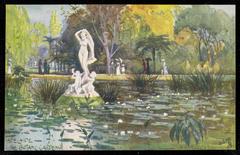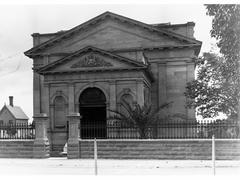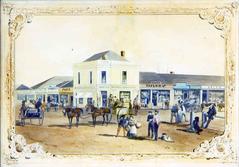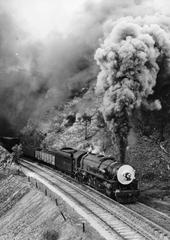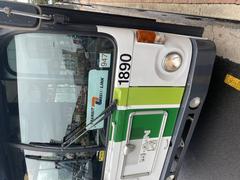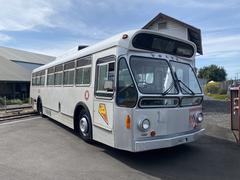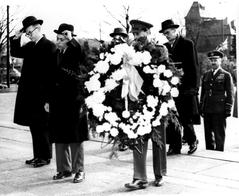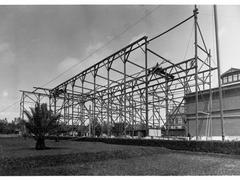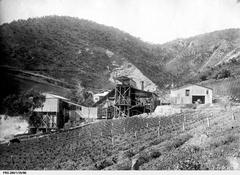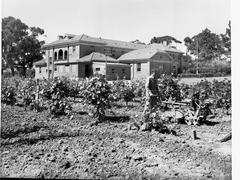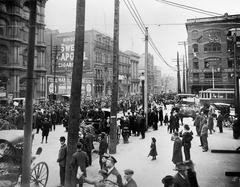
Victoria Square Tarntanyangga Visiting Hours, Tickets, and Adelaide Historical Sites Guide
Date: 03/07/2025
Introduction
Victoria Square, known by its Kaurna name Tarntanyangga, is the symbolic and geographic heart of Adelaide, South Australia. A space where Indigenous heritage and colonial history converge, the square stands as a testament to over 45,000 years of Kaurna custodianship and nearly two centuries of urban development. Today, it is a vibrant civic hub, celebrated for its role in reconciliation, cultural events, and as a gateway to many of Adelaide’s most notable historical sites.
This comprehensive guide details the rich story behind Victoria Square/Tarntanyangga and provides practical information on visiting hours, ticketing, accessibility, nearby attractions, and cultural highlights. Whether you’re drawn by its spiritual significance, stunning public art, or the array of festivals that enliven its green spaces, Victoria Square offers an essential Adelaide experience.
For further insights, consult resources such as CityMag, Adelaide Parklands Association, and SA History Hub.
Contents
- Early History and Indigenous Significance
- Colonial Foundation and Urban Planning
- 19th–20th Century Evolution
- Civic and Cultural Life
- Visiting Victoria Square: Hours, Tickets, Accessibility
- Urban Regeneration and Modern Design
- Heritage, Art, and Commemoration
- Events Calendar and Community Gatherings
- Nearby Landmarks and Suggested Itineraries
- Travel Tips and Visitor FAQ
- Conclusion & Call to Action
- Sources
Early History and Indigenous Significance
Long before colonial settlement, the area now known as Victoria Square/Tarntanyangga was a ceremonial gathering place of the Kaurna people. The name “Tarntanyangga” means “place of the red kangaroo dreaming,” referencing the Red Kangaroo Dreaming ancestor and the distinct yellow rock near the River Torrens (CityMag). For millennia, the site hosted rituals, social gatherings, and cultural exchanges that remain central to Kaurna identity.
Today, Tarntanyangga’s significance is celebrated through annual NAIDOC Week events, the ongoing presence of the Kaurna Reconciliation Plaza, and public art installations. The square’s dual name was officially adopted in 2003, a key step in Adelaide’s reconciliation journey (Truly Aus; SA History Hub).
Colonial Foundation and Urban Planning
Victoria Square was laid out as Adelaide’s central point in 1836 by Colonel William Light, forming the nucleus of the city’s unique grid design (AdelaideLink). Named for Princess Victoria (later Queen Victoria), the square quickly became the city’s civic and administrative core. The early landscaping efforts, including the planting of thousands of trees and the addition of ornamental paths and lawns, shaped the square’s enduring character.
However, the arrival of European settlers also marked the dispossession of the Kaurna, a legacy now acknowledged in public discourse and commemorative art (CityMag).
19th–20th Century Evolution
The square evolved in tandem with Adelaide’s growth. Formal lawns and geometric gardens were introduced in the late 1800s, while World War II saw the space repurposed for civil defense. The 1969 installation of the Three Rivers Fountain by John Dowie added a modernist touch and honored the waterways that sustain Adelaide (AdelaideLink). Public art, statues, and interpretive markers now narrate both colonial achievements and Indigenous resilience.
Civic and Cultural Life
Victoria Square/Tarntanyangga is the stage for Adelaide’s largest civic events, including the annual NAIDOC SA March, Tasting Australia, the Adelaide Festival of Arts, and Illuminate Adelaide (Adelaide Parklands Association; Kids in Adelaide). It is also a site of protest, commemoration, and everyday community life, surrounded by major institutions such as the Supreme Court, Former Treasury Building, and St Francis Xavier Cathedral (Adelaide City Tour).
Visiting Victoria Square: Hours, Tickets, Accessibility
Visiting Hours:
Victoria Square/Tarntanyangga is a public space, open 24 hours a day, seven days a week. Some facilities and surrounding buildings may have specific opening hours.
Tickets:
Entry to the square is always free. Certain events, guided tours, or workshops may require tickets—check event-specific pages or Eventbrite for details.
Accessibility:
The square is fully wheelchair-accessible, with paved paths, ramps, accessible toilets, and seating. Public transport is excellent, with a tram stop on the square’s western edge and multiple bus routes nearby (SA History Hub). Dogs on leashes are welcome.
Travel Tips:
- Spring and autumn offer the most pleasant weather.
- Public transport is recommended during festivals due to limited parking.
- Free Wi-Fi, drinking fountains, and clear signage enhance the visitor experience.
Urban Regeneration and Modern Design
Recent redevelopment projects have modernized Victoria Square’s landscape, improving both its functionality and aesthetics (ArchitectureAU). The square is now divided into two main sections: the northern event lawn, which accommodates up to 8,000 people, and the southern section, which features a mosaic garden, wetlands, and the Kaurna Centre of Culture. Long arcing arbours and promenades provide shade and symbolically connect the city’s hills, plains, and coast.
Efforts continue to reclaim more space for pedestrians—currently, about 40% of the area is roadways—with the goal of enhancing the square’s inclusivity and vibrancy.
Heritage, Art, and Commemoration
Victoria Square boasts a wealth of public art, including the Queen Victoria statue (1894), the Three Rivers Fountain, and the Charles Kingston statue (PlanetWare). The Kaurna Reconciliation Plaza and interpretive signage throughout the square highlight the area’s dual heritage.
Workshops and cultural events at the Kaurna Centre of Culture promote community engagement and respect for the land’s traditional custodians (AdelaideLink).
Events Calendar and Community Gatherings
The square’s dynamic event calendar includes:
- Tasting Australia (May): Culinary festival celebrating local produce.
- Adelaide Festival of Arts: Major arts event held annually.
- Illuminate Adelaide (July): Light and sound installations.
- NAIDOC Week: Indigenous cultural celebrations.
- Tour Down Under: International cycling race.
- Pop-up markets, concerts, and family events year-round (Adelady; Kids in Adelaide).
Nearby Landmarks and Suggested Itineraries
- Adelaide Central Market: One of the city’s top attractions, just west of the square, offering gourmet foods and multicultural cuisine (PlanetWare).
- Rundle Mall: Adelaide’s main shopping precinct, to the north.
- North Terrace: Home to the State Library, Art Gallery of South Australia, and Museum (PlanetWare).
- Glenelg Beach: Easily accessible via the historic tram from Victoria Square.
- Adelaide Botanic Garden: Themed gardens and glasshouses, perfect for a half-day excursion.
Travel Tips and Visitor FAQ
Best Times to Visit:
Spring (September–November) and autumn (March–May) for mild weather and vibrant events.
Getting There:
Central location, excellent public transport links (trams, buses), limited parking during events.
Facilities:
Accessible toilets, drinking fountains, free Wi-Fi, shaded seating.
Safety:
Well-lit, with regular security and a strong community presence.
Frequently Asked Questions
Q: What are Victoria Square’s opening hours?
A: Open 24/7 as a public space.
Q: Is there an entry fee?
A: No, entry is always free.
Q: Are guided tours available?
A: Yes, including free Adelaide Greeters walking tours (Experience Adelaide).
Q: Is the square accessible for people with disabilities?
A: Yes, with accessible paths, toilets, and facilities.
Q: Can I bring my dog?
A: Dogs are allowed on a leash.
Q: When are major events held?
A: Major events occur year-round; check city event calendars for details.
Conclusion & Call to Action
Victoria Square/Tarntanyangga is more than a civic square; it is a living symbol of Adelaide’s layered history, social diversity, and cultural ambition. With its blend of historic monuments, public art, lush gardens, and inclusive community spirit, the square is a must-visit destination for anyone exploring the city.
Plan your visit today—explore official event and tour listings, download the Audiala app for live updates and personalized itineraries, and follow us on social media for the latest news and local stories.
[Insert images: Victoria Square aerial view, Queen Victoria statue, Three Rivers Fountain, Kaurna Reconciliation Plaza, festival crowds, with SEO-optimized alt tags.]
For more details, see Experience Adelaide and Eventbrite’s Victoria Square page.
Sources and Further Reading
- CityMag
- Adelaide Parklands Association
- PlanetWare
- MakeMyTrip
- ArchitectureAU
- SA History Hub
- Adelaide City Tour
- Truly Aus
- Eventbrite
- Experience Adelaide



















